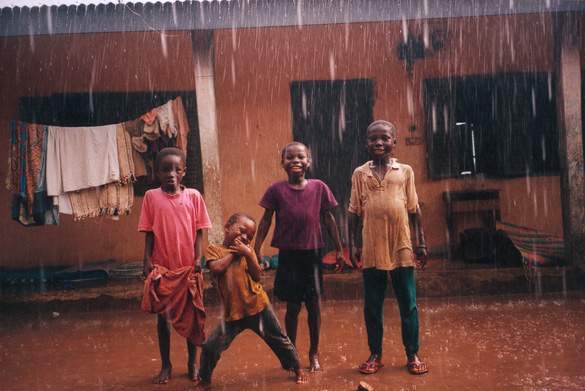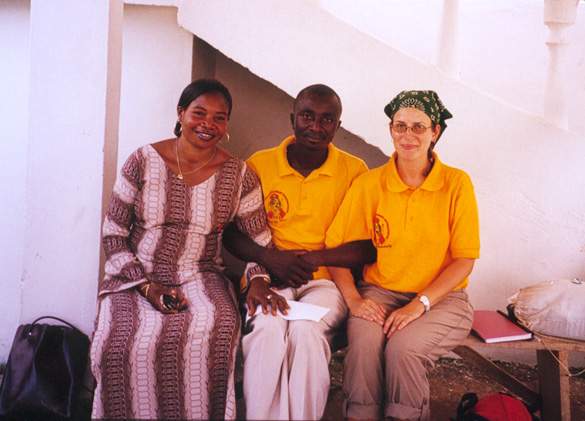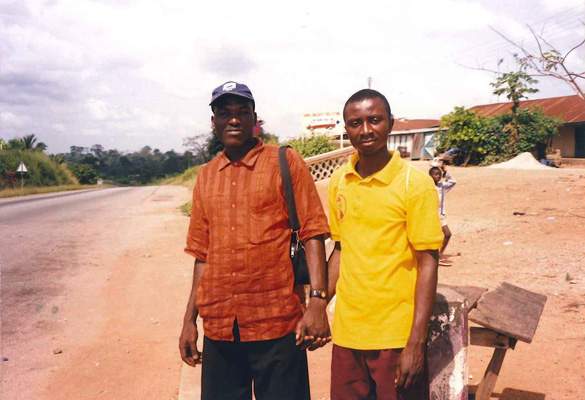Ghana was not my first choice. I was supposed to go to Kenya. And from the moment I walked off the plane into the muggy night air of Kotoka Airport in Accra, I resisted connecting just enough to make things difficult.
It was 2003 and I was spending three and a half months in Ghana as a student with the School for International Training, a division of World Learning. World Learning’s mission is to encourage cross-cultural understanding and create lasting relationships that can ultimately lead to a happier world for all of us. Lofty perhaps, but a genuine and humble goal.
My semester abroad was unconventional. I chose a country that few westerners could find on a map and I was 29, a little old to be an undergraduate abroad. Even so, it was my first time away from the U.S. for more than 10 days, and my first time in Africa.
As days slowly passed, Ghana and her people worked their way into my heart. She is a stunningly beautiful country, rich with history, rolling hills, spicy food and sweet hospitality. Most people have very little, but Ghanaians treat each other like family and no one starves. Still, the poverty that does exist was a challenge to my western idea of human rights. Though I became comfortable in the homes of Ghanaians who had fewer belongings than I could fit in my car, the profundity of our socioeconomic distance never escaped any of us. We were not under any illusions. Yet here we were, trying to make a human connection. It was not easy. Then I met Kwaku.

Kwaku was my research assistant. During my third month I went off on my own to do an independent project. This was part of the program, but where most students chose art or music, I explored the care and support system for people with HIV/AIDS. Without Kwaku, there would have been no project.
He was my coordinator, my translator and my security net. He was also my good friend. Kwaku was about my age, a science and agriculture teacher in the Asante Region. He took time off from teaching to guide me from hospital to support group to local men and women with HIV, every day a new challenge in translation, cultural difference, heart-wrenching horror and gratitude for each living moment. Kwaku was easy to be with, generous with his time, gently teasing me about my absurd western ideas. We grew close during my stay and made promises to keep in touch.
It has been over six years since I left Ghana and Kwaku and I have remained close, but the nature of our friendship is different. Where I once relied on him, he now reaches out to me for financial help. I cannot always give it and I don’t always know if I should. Months pass without communication. I receive an email from Kwaku saying he needs a laptop computer for his work. I manage to acquire one for free and ship it to him. He names his newborn daughter after me. Our connection is strong due to our shared history. But as our communications become increasingly limited to his calls for help, I sometimes find myself reluctantly questioning the genuineness of our friendship.

What do we mean to each other?
The longer I am away from Kwaku and the norms of his culture, the more helpless I feel to define our connection. Our occasional phone conversations can be rewarding or frustrating depending on the day. His English is good, much better than my Twi, but there are linguistic and cultural chasms that we have never managed to bridge. The warmth that still exists is expressed when he gently teases me for not yet having married. I tell him he will be the first to receive an invitation. I ask him how he is doing and he tells me he is struggling to find work. My mind swims with conflicted emotion. Kwaku is smart and industrious. He runs a small NGO and his father is in politics. I do not recognize my own motivation. I want to help. I want him to find work. I want him to not need me. I stop myself. He does not need me, not really. I ask him for more information. He cannot or will not provide it.
Kwaku, like many Ghanaians, is reticent. You ask, “what is wrong?” You receive a vague reply masked in a smile, averted eye contact and a soft voice. This does not mean they are not genuine. On the contrary, Ghanaians are some of the warmest, most genuine people I have known, but they maintain a dignified stoicism in the face of struggle that we soft-soled westerners simply do not understand. We are complainers. They are not. So when you ask them to share their troubles, they keep it simple. It is not because they do not have problems worth sharing, it is because they recognize the futility in discussing them. Problems will be solved, or they won’t. No need to go on about it.
Many of us who travel extensively are drawn to developing countries like Ghana where people live what we perceive to be simple lives. This western notion of simplicity is misguided and can promote subtle, unnecessary feelings of difference. Even if we stay for several months or years, we sometimes behave irresponsibly. We take photos of new friends, post them on our blogs, but never send copies. We learn a bit of the local language, just enough to show respect and get by, but not enough to peel away the layers of cultural complexity. We exchange emails but never manage to write.
Truly connecting with people from other cultures and maintaining genuine friendships over time is a fine art. Personal situations change. We move, we marry, we have children, and our friends go on struggling in ways completely removed from us. If we continue to travel, perhaps it is easier. Maybe that is why I keep going back to Africa. Though I have not yet returned to Ghana, I have explored other countries and cultures and made more friends. Each time, I hope that I become more open, less of a privileged westerner. For some people this comes naturally. For others it takes time to acquire the sophistication necessary to effortlessly navigate the nuances of these relationships.
It is probably not intentional, but our lives of relative privilege sometimes make us careless and over time we separate the cultural artifacts acquired from the people we met, watering down our experiences to faded pastels of the bright primary colors they once were. It is the price we pay for only skimming the surface.
All photos courtesy of the author and may not be used without permission
